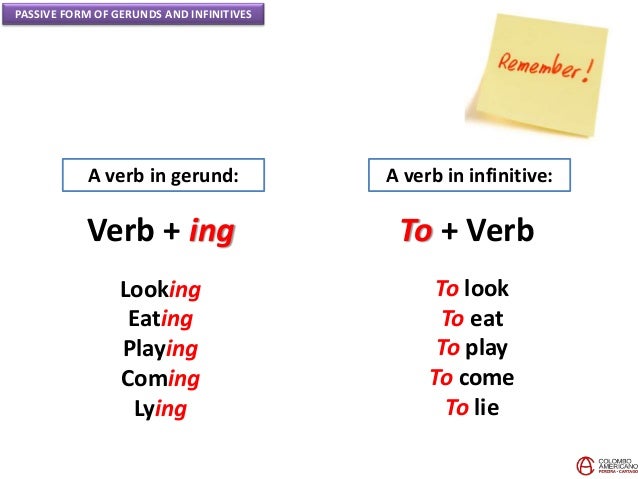Gerunds and Infinitives with Verbs Part 1
Here are some of the most common verbs that are usually followed by the gerund.
- enjoy: I enjoyed living in France.
- fancy: I fancy seeing a film tonight.
- discuss: We discussed going on holiday together.
- dislike: I dislike waiting for buses.
- finish: We've finished preparing for the meeting.
- mind: I don't mind coming early.
- suggest: He suggested staying at the Grand Hotel.
- recommend: They recommended meeting earlier.
- keep: He kept working, although he felt ill.
- avoid: She avoided talking to her boss.
- agree: She agreed to give a presentation at the meeting.
- ask*: I asked to leave early / I asked him to leave early.
- decide: We decided to go out for dinner.
- help*: He helped to clean the kitchen / he helped his flatmate to clean the kitchen.
- plan: She plans to buy a new flat next year.
- hope: I hope to pass the exam.
- learn: They are learning to sing.
- want*: I want to come to the party / I want him to come to the party.
- would like*: I would like to see her tonight / I would like you to see her tonight.
- promise: We promised not to be late.
*We can use an object before the infinitive with these verbs.

Comentarios
Publicar un comentario